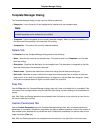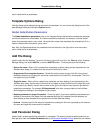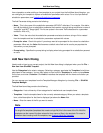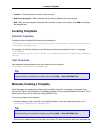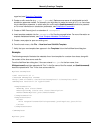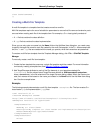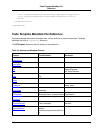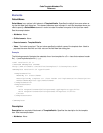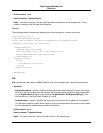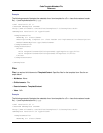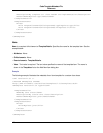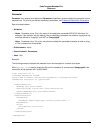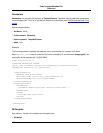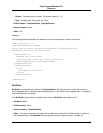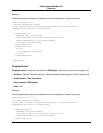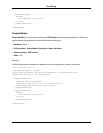
• Child elements - None.
• Parent elements - TemplateDetails.
• Value - Text value is required. The text value specifies the description of the template item. The de-
scription is shown on the Add New Item dialog box.
Example
The following example illustrates the metadata for an item template for a custom Java class.
<?xml version="1.0" ?>
<!DOCTYPE SETemplate SYSTEM
"http://www.slickedit.com/dtd/vse/setemplate/1.0/setemplate.dtd">
<SETemplate Version="1.0" Type="Item">
<TemplateDetails>
<Name>My Java Class</Name>
<Description>My custom Java class</Description>
<DefaultName>MyClass.java</DefaultName>
</TemplateDetails>
<TemplateContent>
<Files>
<File>MyClass.java</File>
</Files>
</TemplateContent>
</SETemplate>
File
File is an optional child element of Files. Specifies a file for the template item. See the example below.
• Attributes:
• ReplaceParameters - Optional. Specifies whether parameter substitution takes place on the file con-
tents when the file is created from the template. Note that parameter substitution always takes place
on the TargetFilename attribute value (example: TargetFilename="$fileinputname$.cpp"). Pos-
sible values are 1 (true) or 0 (false). Defaults to 1 (true).
• TargetFilename - Optional. Specifies the actual name of the item that is created from the template.
This attribute is especially useful when creating a multi-file template where file names of files created
from the template are assembled by parameter substitution.
• Child elements - None.
• Parent elements - TemplateContent.
• Value - Text value is required. Value is the path of a file in the template item.
Code Template Metadata File
Reference
118



